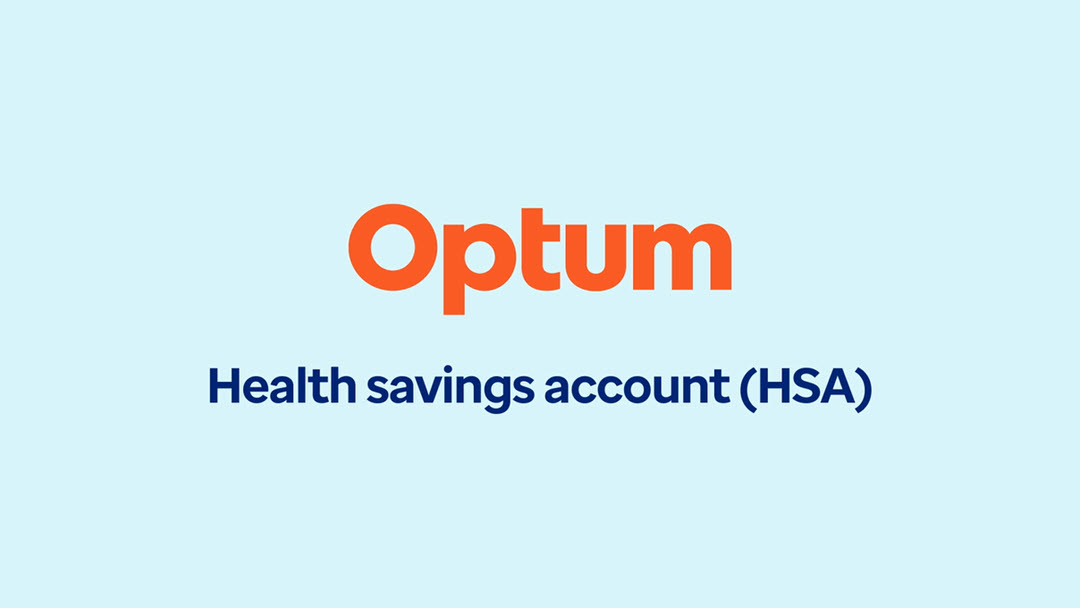New to an HSA? Learn the basics
An HSA is a tax-advantaged account that helps you pay for qualified medical expenses. The funds are yours to keep — regardless if you retire, change jobs or change health plans.
Tax savings
An HSA provides triple tax savings — contributions are not taxed in most states, account growth through interest and investment earnings are not taxed, and withdrawals for qualified medical expenses are income tax free. It’s a win-win to save on health costs today, tomorrow and even through retirement.
Pay the easier way
Your Optum Financial payment card is a fast and convenient way to pay for qualified expenses while skipping the paperwork. From trips to the doctor to everyday care like cold medicine and first aid kits, simply pay using your HSA card and you’re all set. Plus, you’ll save up to 30% because you’re using pretax dollars.*
Invest your funds
Save on care today and for the future
An HSA is like a 401(k) for health care — a tax-advantaged account that you can use for qualified medical expenses today or save for the future, including retiree health expenses and post-65 retiree insurance premiums.
Your HSA also includes investment options that can help you grow your balance for the future.


Fund your HSA
Boost your balance
Contributing to your HSA is hassle free and tax free. Plus, it’s always on your terms, giving you a health expense cushion when you need it.

Use your HSA dollars
What can I buy?
Does your expense qualify? Use our search tool below to find out what expenses you can spend your HSA dollars on.
Frequently asked questions about your HSA
If you’ve got a new HSA, browse our new account holder checklist to get off to a good start.
You can also visit the resource library for videos and other educational materials to help you make the most of your HSA.
To be eligible to open an HSA, you must have a qualifying high-deductible health plan, and meet IRS guidelines for the annual deductible and out-of-pocket maximum.
You also cannot be:
- Covered by any other health plan that is not an HDHP
- Currently enrolled in Medicare or TRICARE
- Claimed as a dependent on another individual’s tax return
- A recipient of Department of Veterans Affairs benefits within the past three months, except for preventive care. If you are a veteran with a disability rating from the VA, this exclusion does not apply.
There are three ways to make a contribution to your HSA:
- Set up recurring contributions — Sign in to your account to set up recurring contributions to ensure you’re contributing the maximum allowed by the IRS each year.
- Make a one-time contribution — If you haven’t contributed the maximum allowed by the IRS, you can make a one-time contribution to your account at any time.
- Set up payroll deductions – Check with your employer to see if payroll deduction into your HSA is provided; if not, you may make after-tax deposits to your HSA and take an above-the-line credit in order to reduce your tax liability when you file your tax return.
The IRS sets guidelines for how much you can contribute to an HSA each year. To learn more about the annual HSA contribution limits, visit our HSA contribution limits page.
Sign in to your account today and check your contribution limit.
No. You can keep your account, and the money in it remains yours, no matter what, even if you change jobs or move off a qualifying high-deductible health plan.
No. You can open and contribute to an HSA at age 65 or later as long as you meet HSA eligibility requirements, which are:
- You’re covered on an HSA-qualified medical plan.
- You’re not someone else’s tax dependent.
- You don’t have any conflicting coverage (including enrollment in Medicare). Turning age 65 does not, in and of itself, preclude you from remaining HSA-eligible absent any disqualifying coverage.
Once your HSA balance reaches $1,000, you can start investing a portion of your funds in mutual funds. The available investment options are part of the Optum Bank HSA for Partners for Health plan.
We’re here to help
Whether you’ve just opened your HSA or you’re preparing to retire, our resources make it easy to save, pay and invest your HSA dollars.

Video
What is an HSA?
Watch this video to learn about the advantages and the purpose of an HSA and how it works.
Transfer your HSA
It’s easy to combine your HSA funds into one account.
Add a beneficiary
Take a minute to ensure you have a beneficiary selected for your HSA.
HSA contribution limits
Take advantage of your HSA’s tax benefits by contributing the maximum.
*Savings compares using pretax income in your health benefit account (HSA, FSA) to using after-tax income for purchases and assumes a 30% combined tax rate from all applicable federal, state, and FICA taxes. Results and amount will vary depending on your circumstances.
The Optum Now is an affiliate of the RVOHealth families of companies.

